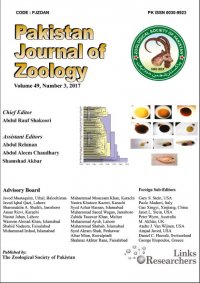1Department of Agriculture and Agribusiness Management, University of Karachi
2Department of Food Science and Technology, University of Karachi
3Institute of Forage Crops, 89 Genearl Vladmire Vazov Str, Pleven 5800, Bulgaria
* Corresponding author: faheemakbar@uok.edu.pk
ABSTRACT
To prevent adverse effects of pesticides on human, it is a must to establish control measures in order to ensure maximum residue limits (MRLs) to be respected. Considering the concerns about pesticide residues in food and their environmental impacts, this study designed to find out the biological degradation of conventional and bio pesticides sprayed on cauliflower crop. Bio pesticides are environment-friendly products and highly biodegradable with low persistency and residual effects. Imidacloprid, endosulfan and profenofos were selected as convectional, while spinosad and biosal (neem compound) as bio pesticides, and were sprayed at the rates of 49.4, 642.2, 988, 35.5 and 158 g a.i. ha-1 respectively. The pesticide residues were analyzed after 0, 1, 3 and 7 days of application in the leaves and cauliflower curd using high performance liquid chromatography. First order degradation kinetics was fitted on this data and degradation rate constants and half-life were calculated. Conventional pesticides were found to be more persistent in the crop (Average half-life: 2.94, 4.06 and 2.74 days for imidacloprid, endosulfan and profenofos respectively) than bio pesticides (Average half-life: 3.87 and 1.81 days for spinosad and biosal respectively). The crops treated with bio pesticides were found safer for human consumption even after few hours of spray compared with codex and EU MRLs. Whereas, endosulfan and profenofos treated crops were not found to be fit for consumption even after 7 days of application, as they were not degraded down to the EU and Codex MRL within usual pre-harvest interval (PHI). Imidacloprid being bio-rational (low risk) pesticide degraded quickly and the crop was also safe for consumption on the next day of application. This study also endorsed the hazardous impacts of endosulfan as its worldwide use is recommended to be phased out globally.
To share on other social networks, click on any
share button. What are these?










